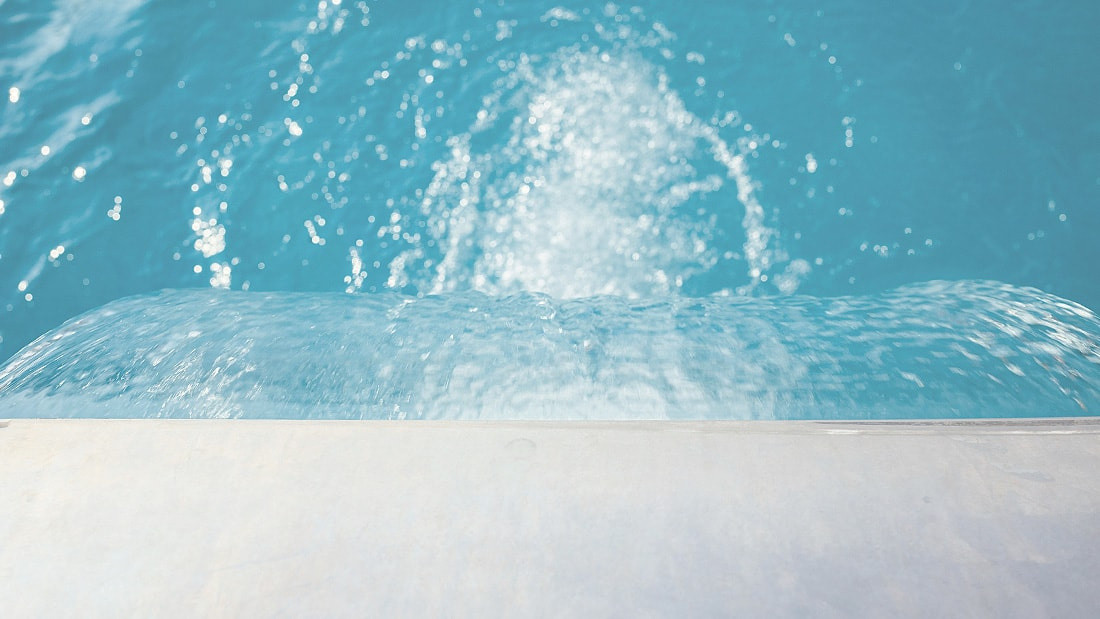
24 Oct Systems for in-ground pools: why hoses are so important
In designing systems for in-ground pools, hoses play a fundamental role. In addition to ensuring a constant flow of cleaned water, they must withstand two types of stress – mechanical and chemical – over an extended period of time.
These two stresses, which are continually present for decades, represent a significant challenge for all in-ground pool components, and hoses in particular. If poor-quality hoses are used, leaks are inevitable. If the system is instead entrusted to specialized retailers and installers who use high-quality products, expensive repairs are no longer a concern. Here is all of the information you need to know to keep down pool maintenance costs.
Are any of the hoses on the market able to withstand chemical and mechanical stress? What are the most common types of damage found in pool hoses? If you want to avoid unpleasant surprises after the pool is installed, keep reading!
The main problems with in-ground pool systems – if you know them, you can prevent them
If not designed correctly, in-ground pool systems can offer unpleasant surprises. To evaluate the vast selection of hoses on the market, we must first understand the most common types of damage that affect pool hoses. In general, the most serious problems result from:
- mechanical pressure
- chemical aggression
- cuts and tears caused by movements as the system itself settles
The broad categories listed above summarize potential causes of deterioration for hoses commonly used in in-ground pool systems. For this reason, FITT – a company that specializes in manufacturing hoses made of PVC and other plastic materials – was able to improve on its already exceptional products by developing the innovative FITT B-ACTIVE hose, which offers:
- a solution to the most common types of damage occurring in spiral hoses for pools
- durability for the entire in-ground pool system
- significant savings in maintenance costs
- worry-free in-ground pool management
These results were achieved thanks to rigorous laboratory testing in collaboration with the University of Padua (Vicenza Campus), Department of Industrial Systems Technology and Management.
The benefits of FITT B-ACTIVE spiral hoses – the test results
Laboratory tests reproduced all of the stresses that hoses for in-ground pool systems must withstand.
The exceptional results obtained are now protected by exclusive D-Shape technology (patent pending), an innovative structure that enhances the hose’s ability to withstand crushing from weight above it and ensures the longevity of the entire system.
Let’s take a look at the tests in more detail:
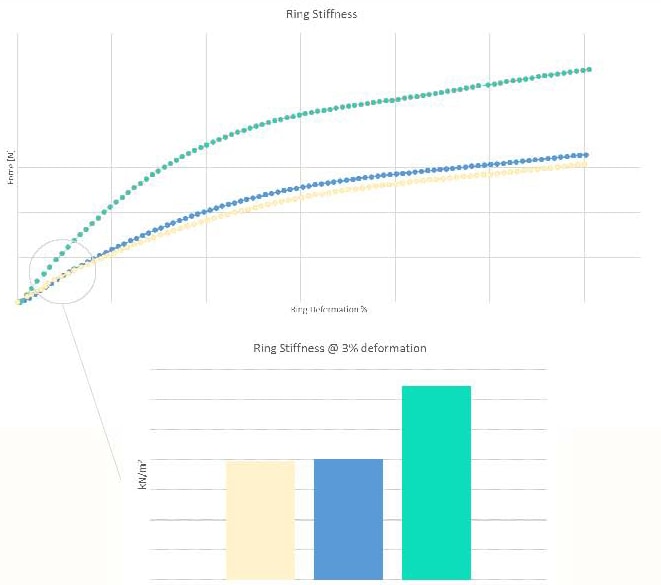
Anular rigidity test
The anular rigidity test simulates the hose’s resistance to the weight of earth. The graphic shows that with increased applied force, the new FITT B-ACTIVE (green colour) offers high resistance to deformation, performing 60% better than other hoses on the market. Test performed in conformity with UNI EN ISO 9969 standards.
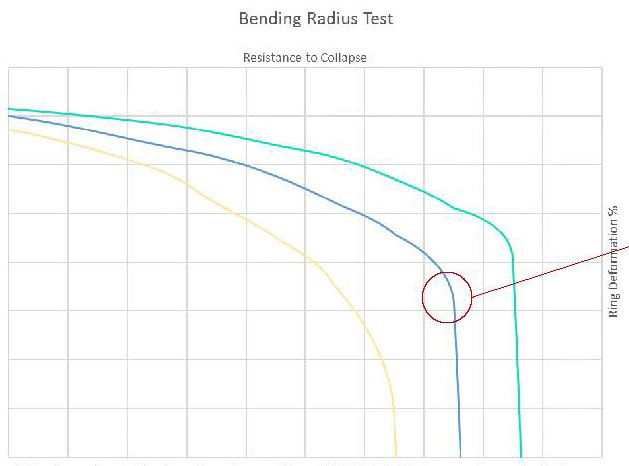
Radius of curvature test
The radius of curvature test demonstrates how much the pool hose can bend before breaking. This is very important because the lower a hose’s radius of curvature, the easier and faster it is to install.
The graphic shows that, as annular deformation increases, FITT B-ACTIVE (green colour) is able to withstand stress much better than other hoses on the market. Test performed in conformity with EN ISO 10619-1 standards.
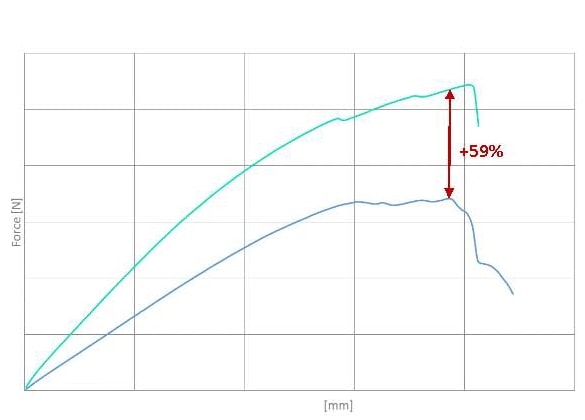
Adhesive strength test
The graphic shows the adhesive strength between the various elements of the hose. The higher the adhesive strength value, the better the hose is able to resist the micromovements of settling, as well as changes in pressure that occur during the system’s operating life.
Thanks to the use of high-quality PVC, the new hose (green colour) offers a cohesion index that is 50% higher than hoses currently on the market, with a considerably higher operating pressure and burst pressure.
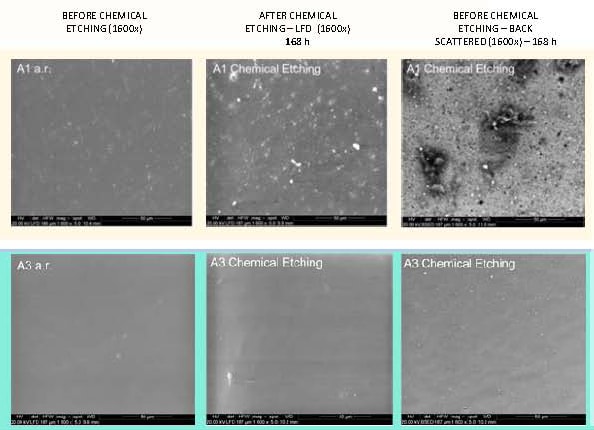
Chemical resistance test
The images show how chlorine and an acidic environment damage the surfaces of normal PVC hoses. The surface of the new FITT B-ACTIVE hose, in contrast, remains smooth and uniform.
This is made possible by an innovative protective film, an interior green lining that has been improved and strengthened to protect the hose from the chlorine and acidic environment in the system. It offers secure, patented double protection against chemical attack. Discover how much chlorine damages pool hoses.
Problem-free in-ground pool systems with FITT B-ACTIVE
Constant mechanical and chemical stress over a period of years irreparably damages hoses used for in-ground pool systems. Fitt, a company that specializes in manufacturing hoses made of PVC and other plastic materials, has developed a new high-performance spiral hose that is better able to resist damage from mechanical pressure and chemical agents.
Numerous laboratory tests, conducted in collaboration with the University of Padua, have demonstrated that in-ground pool systems last longer with FITT B-ACTIVE.
The high level of resistance is ensured by:
- exclusive D-Shape technology (patent pending) and FITT B-ACTIVE (Spiral Protection Barrier patent), which protect the hose from mechanical stress
- a thin, internal protective film that withstands chemical aggression from chlorine (CDS patent) and the acidic environment
- the use of high-quality PVC-P, which provides improved adhesion between the elements that make up the hose, ensuring greater resistance to underground stresses
Thanks to these features, FITT B-ACTIVE maintains its high performance over time, offering significant savings on maintenance costs and problem-free management of in-ground pool systems.
Would you like to know where to find the innovative FITT B-ACTIVE spiral hose? Contact your trusted retailer or click here.
